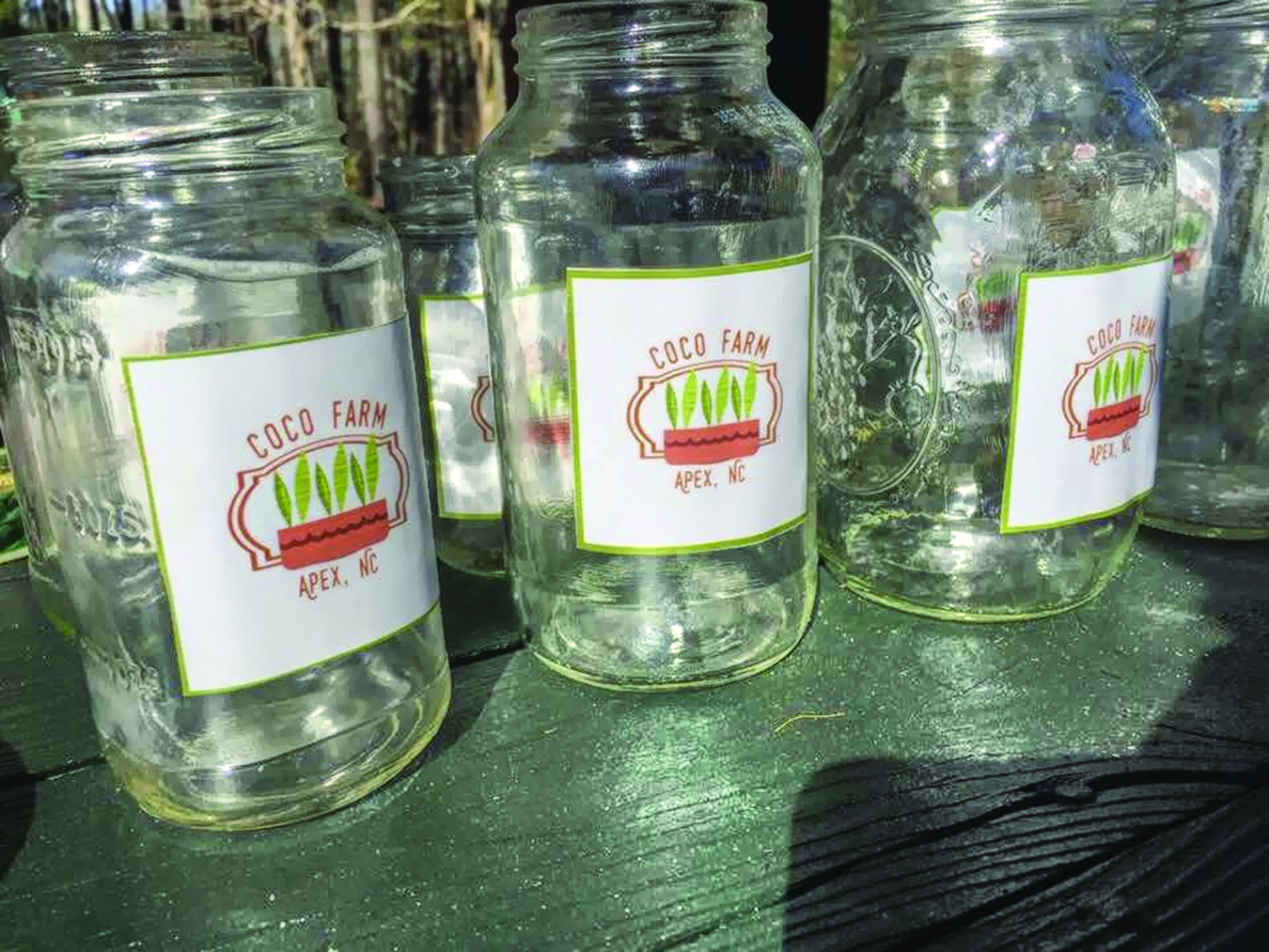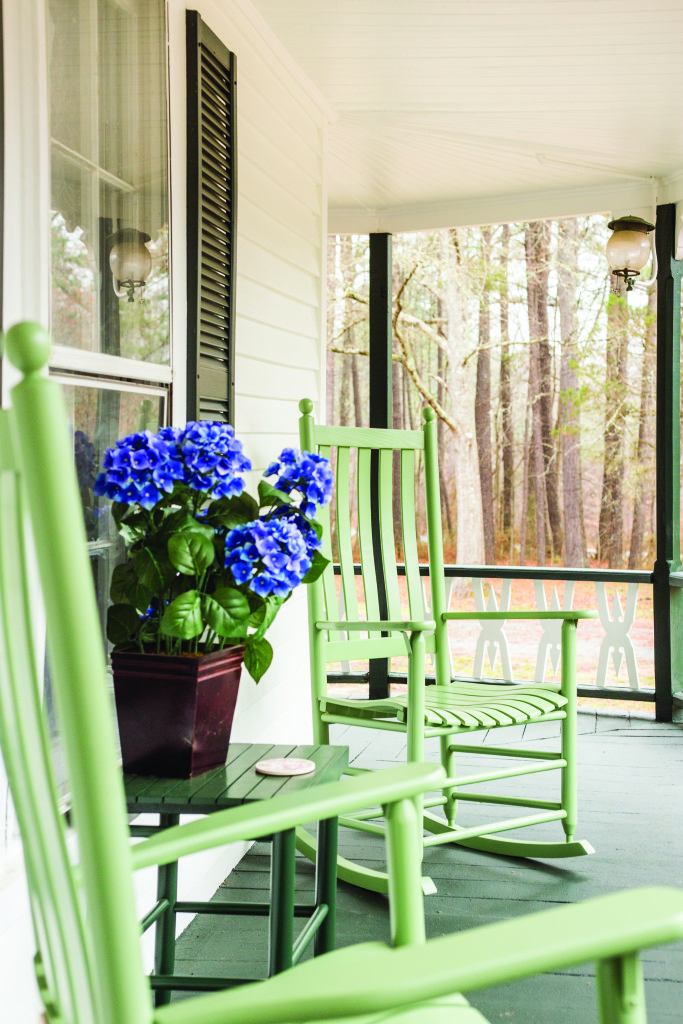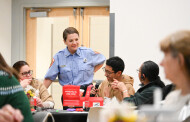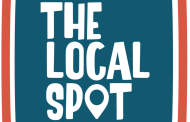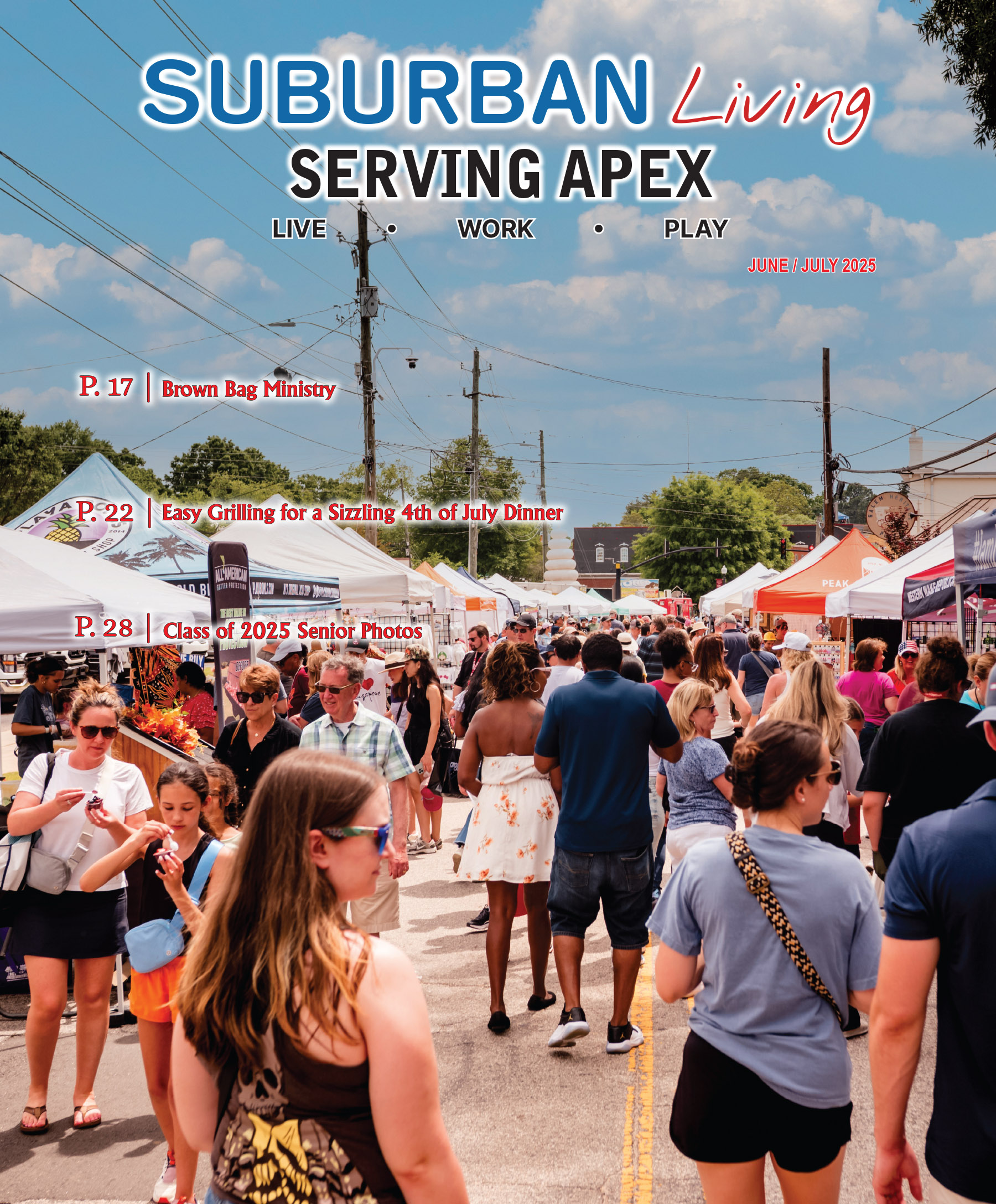There’s a sheen of pale green through the trees and like the azaleas and tulips, we can’t help but turn our faces toward the warmth of the sun. It’s planting season and we know that the patch of dirt in the backyard could be good for something, we just don’t know exactly what and it seems like a monumental task to figure out where to start.
If this sounds familiar, you need to take a drive out to Coco FARM. But be prepared. Once you’re there, you’ll want to wander and explore while soaking up stories of the old 1840s homestead, the generations of family members who lived there, and the 2017 renovation that has given the farm another life, thanks to new owners Corrie and Bruce Burton.
What’s truly special about Coco FARM is that it’s not only the Burton family’s home, it’s also a nonprofit for providing hands-on, novice-level programs and events about land use. Beginning gardening, flowers that attract butterflies and honeybees, and water conservation are just a few of the topics the Burtons will offer thanks to partnerships with local farmers.
Sowing an Idea
It wasn’t always part of the Burtons’ plan to renovate an old farmhouse and start a nonprofit for backyard farming. In fact, a handful of years ago, Corrie and Bruce didn’t even know each other. He was a Vermont native with a degree in horticulture but working in heating and air after serving in the military. She claimed all of North Carolina as home and was an outdoor marketing specialist whose career put her in contact with organizations involved in soil preservation, historic preservation, pollinator rejuvenators, fisheries, and all forms of outdoor sports.
What they had in common was being single parents living in the same neighborhood in Cary. Their kids introduced them and romance blossomed.
With the blending of their two families, Corrie cut back on her marketing projects and started thinking. “For a long time, I had a dream of wanting to show people, especially youths, how to get involved in the outdoors. My kids took a plot in our yard that would’ve been a flowerbed and used it for produce. They planted and harvested in total astonishment and amazement. I thought about how, as adults, we don’t go out and do a happy dance every time there’s a tomato on the vine, but kids do. It was a eureka moment for me.”
The name “Coco FARM” is a combination of Corrie’s childhood nickname and an acronym which stands for Future Agricultural Resources Management. As Corrie explains, “It’s all about connecting people with whatever farming means to them. Farming might mean putting herbs on your windowsill, or planting tomatoes, or building a raised bed, or cultivating major plots of land. I want to be the platform to teach people and to connect them with farmers.”
A House with Old Roots & a New Future
The next step was to find property on which to cultivate Corrie’s ideas. But not just any property would do. Corrie wanted a house that already had special meaning in a local community. Such a place existed in Apex on two and half acres off of Highway 751 where a two-story 2,550-square-foot farmhouse with a wrap-around porch sat beneath great oaks, a discreet distance from the gravestones of a family plot dating back to the 1700s.
The original structure, built in 1840, is now the kitchen, and the house is several times bigger. A number of rooms were added to the front of the house in 1860 and a second floor was constructed in the early 1900s. Period identifiers point to the era of each section and enhance the charm and interest of the house. For instance, a bedroom accessible from the foyer by passing underneath the staircase was likely once a parlor due to the fact that the staircase is aimed toward the back of the house and wall markings are indicative of a much more ornate door than typical of a bedroom. The positioning was purposeful so that someone coming in from the fields could go upstairs to wash up without being seen by guests in the parlor.
Neighbors describe the house as always having been a meeting place, and the property and its history fit perfectly with the vision the Burtons had for Coco FARM, but the place needed a lot of work. “It was under contract three times,” Corrie says. “When the architectural engineers came in, people ran. It took six months for us to close because we had to prove to the bank that the house wouldn’t fall apart when we moved in.”
By November 2016, Corrie and Bruce had finalized a business plan for Coco FARM as a nonprofit, developed a year-long restoration schedule with bids from local contractors, and secured a loan that was contingent on completion of the renovation. They immediately started knocking down walls and ripping up floors. A year later, on the day after Thanksgiving 2017, the old homestead was radiant with new life.
Connecting People to Resources
The Burtons want Coco FARM visitors to know that even the simplest methods of farming can have a significant impact. “If we don’t, each of us, grow a few things, we’re not going to be able to pass this on to our next generations. Kids really connect with gardening and what better way to encourage that than by offering free family activities that parents can learn from as well. And I don’t want to stand here and tell people about it,” Corrie adds, “I want people to feel the dirt in their hands and construct the stuff.”
Her resources are vast and Corrie is excited about bringing people in contact with farmers as well as representatives from organizations like the North Carolina Department of Agriculture and the North Carolina Wildlife Federation. “The NC Wildlife Federation is responsible for the Butterfly Highway planting projects. They have a program where they give kids milkweeds to take home and plant, specifically to rejuvenate the monarch butterfly [population.] We want to work with them to tap into youth audiences.”
Other programs you can expect to find at Coco FARM include What and When to Plant, Composting, Garden Art, and Constructing a Raised Bed. Throughout the summer and at harvest time, visitors can enjoy fresh produce to take home with them and excess from the gardens will be donated to local food pantries. “We expect to repeat some weekend workshops during the week and create field trip opportunities for homeschool and other groups.”
But don’t get the idea that Coco FARM is only about getting your hands dirty. The Burtons have agreements with artists, furniture makers, and other craftspeople to sell locally-made products, with all proceeds going back into the nonprofit. And, they’re gearing up for a busy season with brides who desire an historic home as that ideal setting for portraits and weddings.
Corrie’s enthusiasm is infectious, no matter what the topic, but when it comes to gardening, she emphasizes, “People think, ‘I can’t garden. I can’t farm. I don’t know how to begin. I don’t know what I can grow or when I can grow it.’ I really want to break it down. You can make a windowsill garden, a patio garden, a backyard garden, and while you’re doing that here’s additional information about other ways you can make an impact in your world. I want to be a ‘people farm’ that connects people to farming.”

